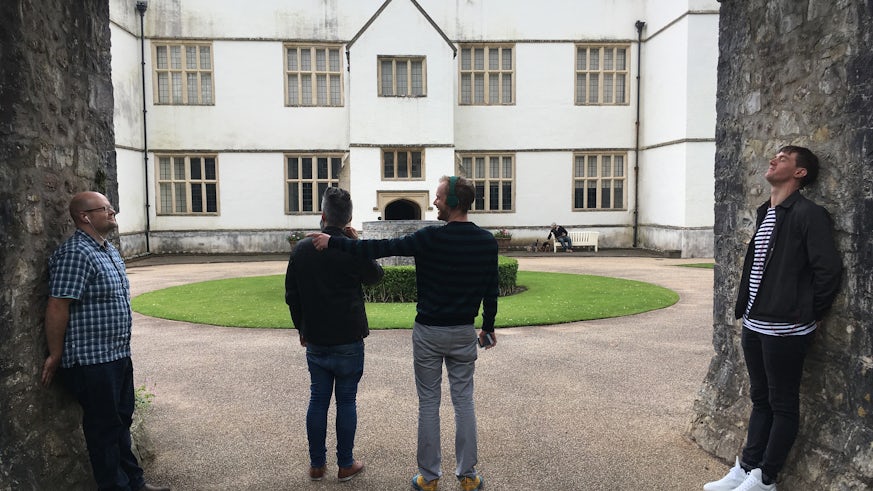Universities must work more flexibly for arts and humanities research to have greater value
22 November 2017

A new report involving academics from Cardiff University recommends that universities respect the expertise of partners in creative and cultural sectors, if they want collaborative arts and humanities research to have greater value.
GW4 Bridging the Gap, supported by the Arts and Humanities Research Council (AHRC), was a year-long research project to explore collaborative research in the arts and humanities in South West England and South East Wales.
The project focused on the following areas: creative economy, heritage, modern languages and environmental humanities, and senior representatives from organisations including the National Trust, the Watershed and National Museums Wales shared their experiences of working with academia.
The final report includes a series of recommendations for universities and funders of collaborative arts and humanities research. Universities are encouraged to adapt to different working processes when partnering with creative and cultural organisations, dependant on their size and aims. They are also urged to address the vacuum of opportunity that exists between PhD or early career research and more stable professorial academic contracts.
Funders are invited to put “third party producers” in place on projects to better support partnerships between universities and non-academic organisations, and to build collaborative career pathways for early career researchers.
Sector-specific recommendations include:
- Creative economy: introduce new funding models for collaborative research that combine short-term grants with long-term, open-ended support.
- Heritage: ensure collaboration moves beyond relationships between individuals by involving a wider network of colleagues in partnership projects.
- Environmental humanities: university and non-academic partners should pursue curiosity-led, rather than just challenge-led, research to address issues together.
- Modern Languages: launch a series of regional networking forums, bringing together university researchers with potential partners in different sectors, including local government and NGOs.
Professor Anthony Mandal, Professor in Print and Digital Culture, Cardiff University and GW4 Bridging the Gap creative economy lead said: “We found many encouraging examples of rich and mutually beneficial interchange between universities and the creative industries.We also heard that universities have a vital role to play in supporting the creative economy and stimulating new potential. Similarly, universities can benefit from the insights and expertise of creative practitioners in ways that improve the quality of research and teaching...”

"At the heart of our findings was compelling evidence that the most successful collaborations are built on mutual respect and equality. We hope that our report has highlighted the opportunities and, equally importantly, the challenges facing partnerships between higher education and the creative economy."
Professor Hugh Brady, Chair of GW4 Council and Vice-Chancellor and President, University of Bristol said: “The Great West region is home to innovative arts and humanities research and world-renowned cultural heritage. Our creative economy is the second largest in the UK behind London. As the report demonstrates, bringing these elements together requires mutual respect between universities and non-academic partners and an openness to pursue curiosity-led research. I am hopeful that Bridging the Gap will act as a best practice template for collaborative working across the UK and will lead to improved partnerships between researchers and creative and cultural organisations here in the Great West.”
In Cardiff, creative and cultural economy partnership working is exemplified by Creative Cardiff. Creative Cardiff is a network which connects people working in any creative organisation, business or job in the Cardiff region. Its purpose is to make Cardiff and the region the most creative place it can be by enabling collaborations, amplifying opportunities and encouraging innovation. Creative Cardiff is supported by Cardiff University’s Creative Economy team in partnership with founder members Wales Millennium Centre, BBC Cymru Wales and Cardiff Council.
Share this story
Bringing together four of the most research-intensive and innovative universities in the UK; the universities of Bath, Bristol, Cardiff and Exeter.






